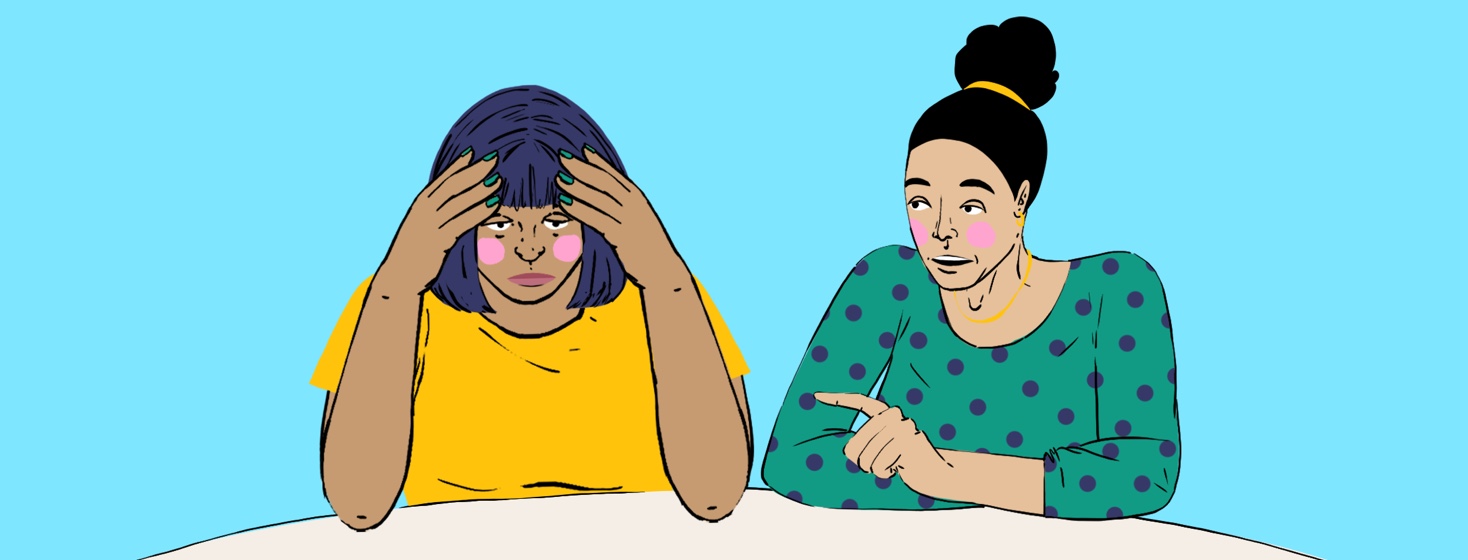Tips for Giving Unsolicited Medical Advice (#1, don't)
The energy I have on any given day is precious and fleeting, so I allow myself the luxury of a house cleaner. I originally went through a cleaning company. I worked days then, so I didn't know who cleaned, but I did know there was one person who was better than anyone else. I called this person "The A-Team," and despite my request for only "The A-Team," they would occasionally send someone else.
When I found myself home on medical leave, home during the cleaning visits, I got to know The A-Team or Trisha. And I came to trust her. So it was not a happy surprise when someone else walked into my home, unannounced, on Trisha’s scheduled cleaning day.
Unwelcome and unsolicited psoriasis advice
The important characteristic of the substitute, due to no failing of her own, is that she is not Trisha. In talking to not-Trisha, she tells me that she wears multiple hats. She used to be a massage therapist. She sells essential oils as a side gig. And she wants to know what’s wrong with me. Because she has advice.
This is when I remind myself of the breathing exercises my therapist taught me. And that I don’t have to say everything that pops into my head. “Thank you for your advice. I have a team of specialists who manage my psoriatic disease.” I say.
As you can probably guess, she doesn't give up that easily. “What you need to do is…”
That’s when I checked out. She was a stranger in my home. I was paying her to clean, not to give me medical advice. Without any background information, she pried into my personal life and my pain in a way that felt violating. It was obvious that I was mad. Not-Trisha was clearly frustrated, as she felt that she had valuable information that I wasn’t hearing.
Questions to ask yourself if you'd like to offer advice
I value the opinions of people I know and respect. People who know me and who know how much time I spend on my health are people I welcome advice from. I love it when a friend says, “I know you have tried almost everything, but I heard of XYZ and wondered if you’ve heard of it.”
But, when a stranger comes into my home and knows nothing about me but what she learned in a three-minute conversation, I resented her medical advice. If you are considering offering up medical advice to someone, ask yourself these questions...
- Was I asked to give advice? If not, and you only just met this person, unless you are a proven expert on the subject, don't do it.
- Does this person want my advice? Check the signals you’re getting. Look at body language. If you’re the only one talking, don't do it.
- Am I in a position to offer advice? Does my relationship with this person warrant it? Am I a trusted friend? In most cases, don't do it.
Relationships are built on trust
I trust Trisha. With her regular weekly visits, we have had many conversations, and there is no conversation that is off-limits between Trisha and me. If she learns about something that would be helpful to my disease, I hope she will tell me. We know each other well enough that I would welcome this.
The Not-Trisha's of the world may be driven by a desire to help or by the need to be seen as a hero-expert-in all-fields. The motivation really doesn't matter. Reserve advice for those with whom you’ve already established trust.
What do you do when someone offers unsolicited medical advice?

Join the conversation